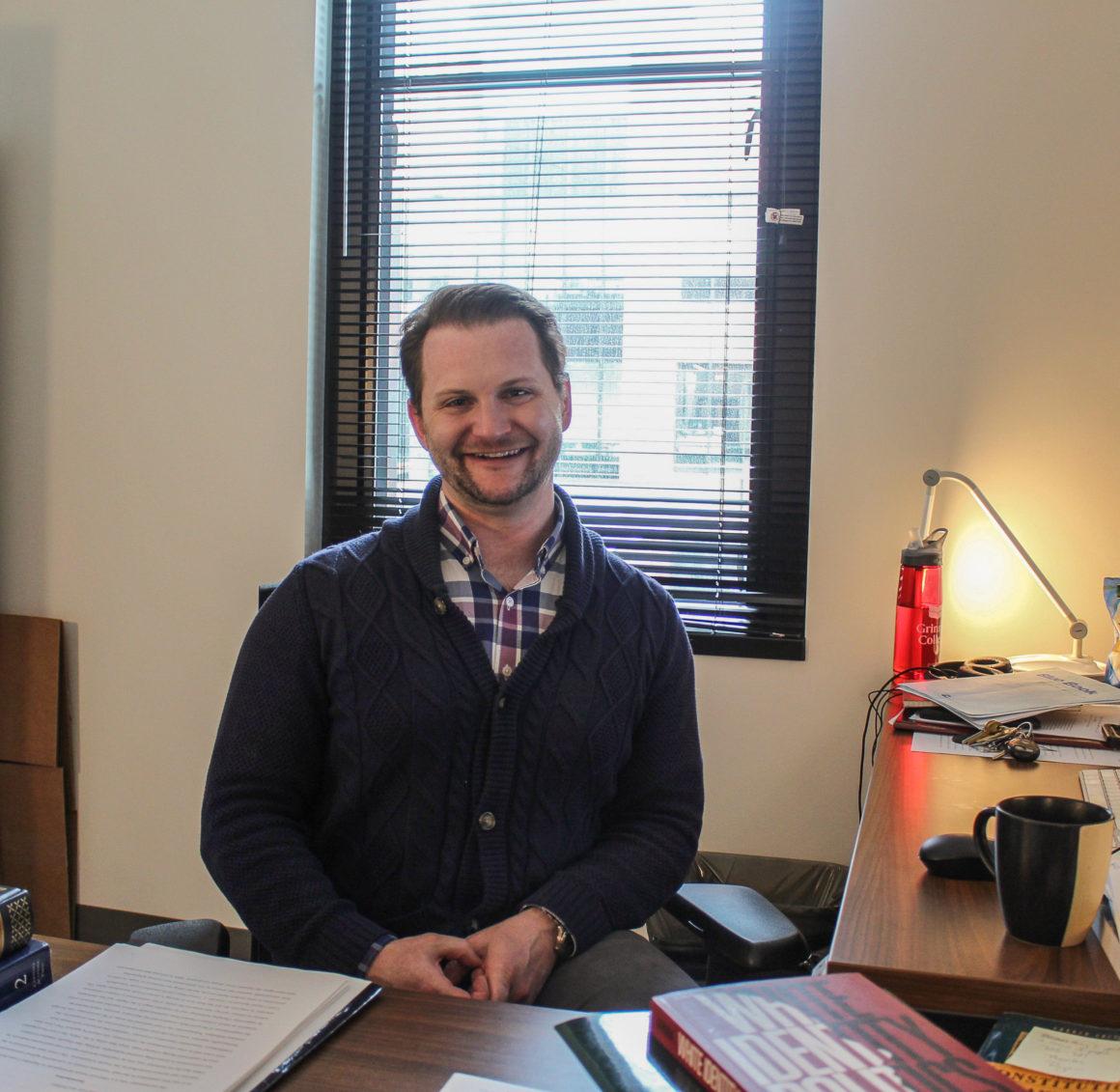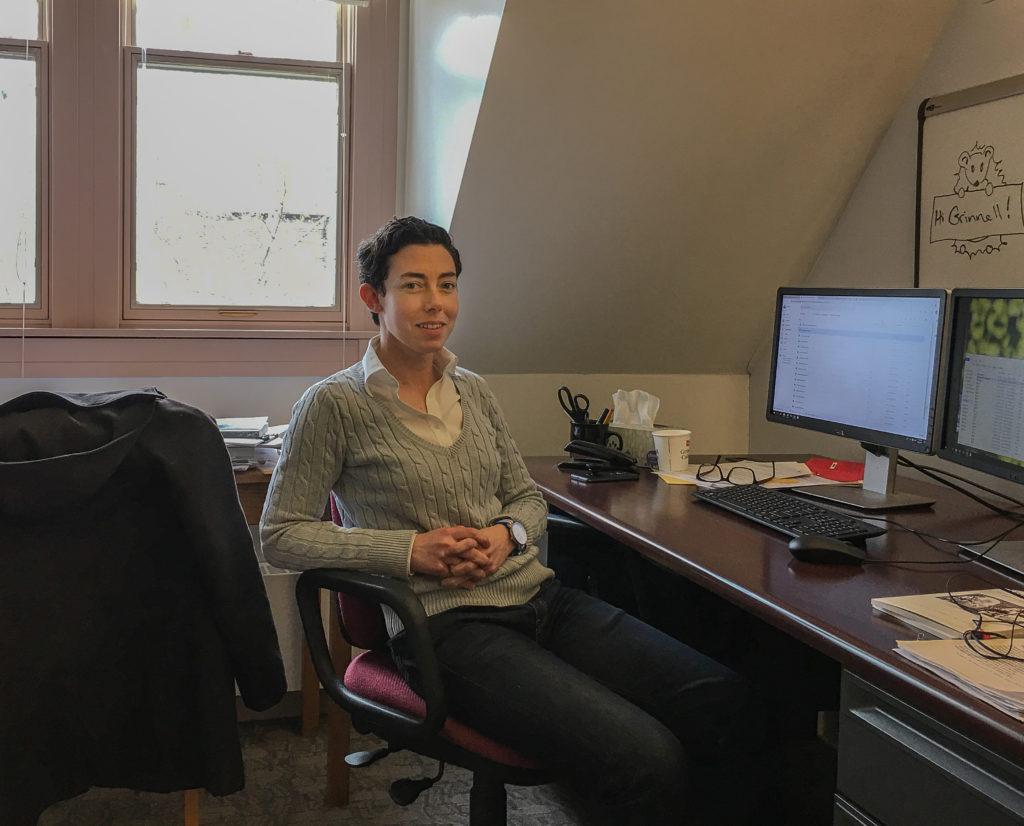Some familiar faces will be missing from the faculty of various departments next semester, as time at the College for a number of visiting professors is coming to an end. Visiting professors at Grinnell are usually hired on one or two-year contracts, after which they move on to other institutions of higher learning, or, in some cases, stay and fill in existing tenure track positions.
English professor Jennifer Lorden began teaching at Grinnell right after completing her doctorate in English and Medieval Studies at the University of California Berkeley.
Lorden expressed her gratitude for the experience she gained at the institution, saying, “I’ve been very grateful for my experience at Grinnell, and especially for my amazing colleagues and students.” In her time here, Lorden has taught courses on the tradition of English literature. In the fall, she will move to William & Mary, where an assistant professor position awaits.
Political science professor Ryan Dawkins will be moving to the Air Force Academy in Colorado after this academic year. On his time at Grinnell, he said, “Oh, I’ve loved it. I think it’s been great. I mean, I would love to stay … the students are great.”
While here, Dawkins has taught a number of classes, including Intro to Political Science and Urban Politics. He’s also taught seminars in constitutional law, public opinion and political behavior.

Dawkins noted that he was impressed by his students, saying, “[Grinnellians] have really just impressed the hell out of me. …The way [my students] have approached the subject and the questions they ask, and just the genuine interest that they have expressed, has just been amazing.”
This difference can be partially attributed to the nature of the institutions he’s taught at previously. Dawkins explained, “I’ve taught at Ohio State, which is the largest public research university in the country…having a large research institution, where I’ve taught classes that [have] 400 students, I mean, you just can’t really compare. Plus, the students here are just better, and it’s reflected in the work that you do.”
Similarly, Professor Fredo Rivera ’06, art history, came from a much larger institution and has observed a number of differences at Grinnell. Rivera was hired as a visiting professor, but is now in a tenure-track position at the College. He said, “My previous job was at an architecture school at a large public university. The experience was very different, both in regards to resources and the size of my classes. Being a large commuter school in a more urban setting, I do miss the diversity of students.”
Rivera continued, “As an alum of the college I do prefer the liberal arts setting. I love how much faculty care about teaching, and how Grinnell challenges us to develop our pedagogy in meaningful ways.”
Rivera, whose research interests involve art and architecture in modern Cuba, Haitian art, and the relationship of the art world and real estate development in contemporary Miami, has taught courses on Caribbean art, visual culture, and contemporary architecture in his time here. In his work, he has found a renewed appreciation for Grinnell.
“I’ve loved getting to work with students at an individual level. I’ve also had the wonderful opportunity to travel with students, both abroad and throughout the United States. As an art historian whose work focuses on modern architecture, it’s a unique privilege to visit sites and consider them in situ. I also get to know my students a lot more personally, something I have also experienced on brief class field trips within the Midwest,” Rivera said.
While these three professors have enjoyed their time at the College so far, they have also noticed certain areas where they feel change would be beneficial. Rivera said, “We are always too busy, myself included. Sometimes in the stress of the semester you forget to breathe and appreciate how wonderful this place can be.”
Dawkins remarked on the curriculum, saying, “I think in general the student body would be well-served by having more ideological diversity. I know, there’s [been] a movement to diversify the curriculum, to include more voices. I think that’s a good thing. And I think I would like to see more ideas being introduced with students, rather than fewer.”
Lorden shared an all-too-relatable thought, saying, “I came directly from my PhD at UC Berkeley, and [the] -50 wind chill has certainly been different!”



































































